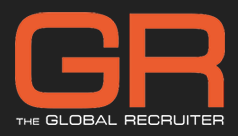Chris Duck, Product Director, Matrix Workforce Management Solutions
The UK government’s new legislation, making agencies and end clients jointly liable for unpaid payroll taxes from non-compliant umbrella companies, is a defining moment for the recruitment industry. When this comes into effect in April 2026 under the Finance Bill 2025-26, it will fundamentally reshape the responsibilities and risks within the temporary labour supply chain.
For me, this isn’t just a regulatory update, it’s a wake-up call for the entire industry. The “murkiness” that has long surrounded umbrella companies is finally being confronted and I think that’s absolutely necessary as for too long a handful of unscrupulous operators have undermined trust in a market that plays an essential role in connecting flexible talent with businesses that need it.
This legislation will not only close tax gaps but also bring much-needed accountability. While some agencies and umbrella companies are already operating to high standards and will take this in their stride, others may not be nearly as prepared as they think they are. And some, frankly, never will be. That’s part of the point: the new rules will push non-compliant players out of the market.
One of the most significant steps forward for the industry will be the move towards standardised accreditation. I strongly believe that Professional Passport or equivalent accreditation should become mandatory across the sector. It’s not enough for agencies to do their own audits in the background; the level and consistency of those audits can vary massively. Without a uniform standard, it’s difficult to ensure that everyone is playing by the same rules. Accreditation gives agencies and contractors confidence that the umbrella company they’re dealing with is operating transparently and compliantly. It sets a benchmark for good practice and helps rebuild trust in a market that has, at times, struggled with its reputation.
This legislation is ultimately designed to protect workers and that’s exactly how it should be. Too many contractors have been left with unexpected tax bills due to non-compliant umbrellas. The key to preventing that lies in transparency.
Reputable umbrellas already know how to balance commercial benefits for contractors with proper compliance. There’s nothing inherently wrong with umbrellas, in fact, they can offer real advantages, from simplifying payroll to providing employee benefits. But those advantages mean nothing if the basics, like tax payments and accurate record-keeping, are neglected.
For agencies and end clients, the message is clear: take a closer look at your supply chain now. You can’t afford to be in the dark about how workers are being paid or what contributions are being made. This means working closely with recruitment partners, ensuring everyone understands employment terms from day one, and providing absolute clarity around pay and benefits for temporary staff.
In my view, technology and increasingly AI, is playing a critical role in helping agencies manage these changes. IR35 was a huge catalyst for the rise of umbrella companies and one of the ongoing challenges has been maintaining visibility across a complex chain of relationships. The only real way to manage this is with transparent data and systems that make it easy to track payments, contributions and compliance obligations. Automation can help agencies and clients audit their supply chains in real time, flagging potential red flags early and freeing up staff to focus on higher-value tasks. AI, for all the buzz around it, has real potential here. Whether it’s identifying anomalies in timesheets or cross-checking payment records, the right technology can reduce risk while improving efficiency.
I understand the added pressure that this legislation will place on recruitment businesses. Navigating complex supply chains is already challenging enough without the additional liability of umbrella non-compliance. But I see this as an opportunity rather than just a burden. In practice, I suspect we’ll see the number of umbrella companies shrink over the next couple of years as the market consolidates around the most reputable players. For agencies, this could simplify management, but it will also require greater scrutiny and due diligence on the umbrellas they do partner with.
My advice? Start auditing your supply chain now, invest in the right technology for transparency and view compliance as a competitive advantage rather than a box to tick. The agencies that embrace this shift will not only stay on the right side of HMRC but also build stronger, more trusted relationships with clients and contractors.
The recruitment industry has always adapted to regulatory change and this will be no different. But what’s clear is that the future of temporary staffing will be built on trust, transparency and technology. The days of opaque supply chains and loose oversight are numbered.
By embracing accreditation, leveraging technology and prioritising open communication with contractors, we can create a system that works for everyone – workers, clients and the wider industry. Compliance doesn’t have to be a burden. Done well, it’s the foundation for a stronger, fairer and more sustainable temporary labour market.

